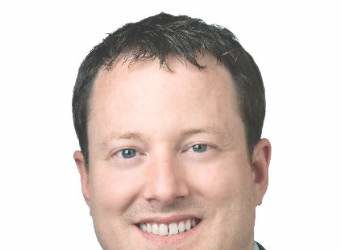Physician pay has been flat for years, and my crystal ball doesn’t show that changing any time soon. But the American people just elected a regulatory wrecking ball, so let’s look at some changes we can hope the Trump administration will make.
Let’s start by eliminating the regulations that interfere with patient care and degrade the quality of care. Does the Medicare Access and CHIP Reauthorization Act (MACRA) and its Merit-based Incentive Payment System (MIPS) really have anything to do with the quality of care? No, the regulations that will implement the coming MACRA reforms were written contrary to congressional intent by the Department of Health & Human Services as a last-ditch attempt to impose the Affordable Care Act on American physicians. Let’s repeal it! At a minimum, let’s exempt physician practices of 9 or less, rather than 15, as the regulations call for. Where did 15 come from?
Let’s block any potential regulations that the Food and Drug Administration may issue that would regulate physician-office compounding for individual patients. There have been few to no patient injuries from physician-office compounding, and it saves an incredible amount of money and allows for customized patient care.
What about electronic medical records? I’ve heard some emergency physicians and hospitalists like them. Well OK, they can keep them. Many of the rest of us believe it has seriously degraded the physician-patient encounter and that the preprogrammed nature of many systems makes the medical record much less useful for providers. Let’s repeal any financial penalties for not adopting electronic medical records.
Let’s eliminate the pay differential for office-based physician services when provided in the office and when they are provided – and better paid – in the hospital. Office services are provided more efficiently, and at lower risk, in the office than in the hospital. This is an anomaly in the payment system that potentially injures patients and dramatically increases costs.
Let’s repeal the ability of nurses and physician assistants to bill independently for surgical procedures. Congress never dreamed that this could happen when they passed independent payment authority for these providers. This subjects patients to unnecessary procedures by inadequately trained providers and and generates unnecessary costs.
How about HIPAA? How many lives has HIPAA protected and how much useless paperwork and legal mumbo jumbo has it created?
Let’s eliminate the Clinical Laboratory Improvement Amendments (CLIA). Has this legislation really saved any lives or increased the quality of care? Show me the data!
Let’s eliminate most of the Occupational Safety and Health Administration (OSHA) medical office requirements. It is hard to argue against hepatitis vaccinations, but the rest of the regulations are regulatory overkill. Do you really need a metal container with a lockable lid to carry instruments to the lab to be autoclaved? Do you really need two pairs of long leather gloves to fill a cryo gun? Do you really need material safety data sheets for every liquid in the office, including the solumedrol for injection in your cabinet?
Which medical regulations would you like to see repealed? President-elect Trump has stated he wants two regulations repealed for every new one enacted. Let’s give him a wish list from dermatologists. This is a major opportunity to increase the efficiency and productivity of American medicine. If Congress refuses to reimburse physicians at rates pacing the cost of living, the least they can do is unshackle us!
Dr. Coldiron is past president of the American Academy of Dermatology. He is currently in private practice but maintains a clinical assistant professorship at the University of Cincinnati. He cares for patients, teaches medical students and residents, and has several active clinical research projects. Dr. Coldiron is the author of more than 80 scientific letters, papers, and several book chapters, and he speaks frequently on a variety of topics. Write to him at dermnews@frontlinemedcom.com.




